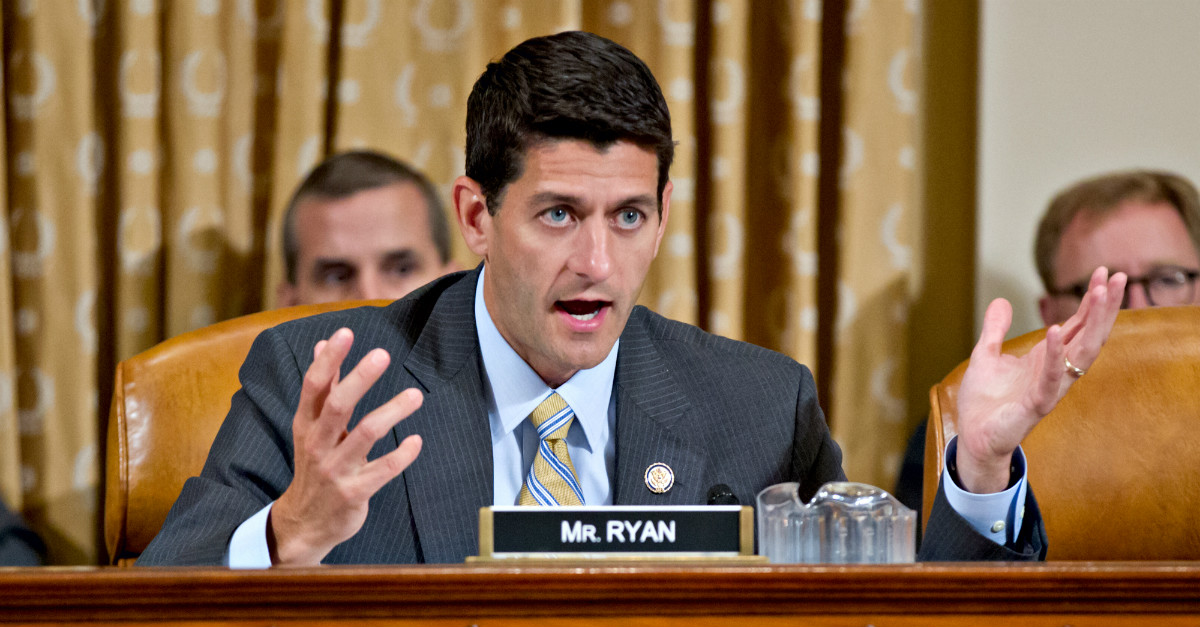On Monday, the House Ways & Means and Energy & Commerce Committees released their drafts to repeal and replace Obamacare. The plans are a mixed bag for Americans who might have been hoping for much-needed relief from the failing and expensive Affordable Care Act.
Videos by Rare
There’s been a lot of partisan noise that will likely only ramp up in future days, so it’s useful to step back and take a measured look at what’s promised in this legislation.
The committees, as they are wont to do, are far behind schedule. As FreedomWorks Jason Pye pointed out last night, they released this text long after the January deadline outlined in the terrifically bad “fake budget” that kicked off the process. Lawmakers are not wasting any time now, though, moving to committee votes this Wednesday, less than 48 hours after the text is released and before a Congressional Budget Office score has been completed.
RELATED: Rand Paul can save health care reform
Depending on who you ask, the plan is either a dark billionaire’s fantasy that will rip coverage away from dying Americans, or Literally Obamacare with a better name.
Between the extremes, there are real reasons that elected officials and organizations, including the House Freedom Caucus and Republican Study Committee, are expressing skepticism at some of the details.
First, there is some good news. The plans would end the individual and employer mandates, while phasing out Medicaid expansion and seeking to expand state authority and Health Savings accounts (HSAs). Writing in Forbes, Ryan Ellis points out that the plan nearly doubles the HSA contribution limit, saying, “HSAs will become a powerful new financial savings vehicle to rival 401(k)s and IRAs.”
These types of options have the potential to save federal funds, allow better healthcare under more localized jurisdiction, and empower individuals to save and pay for healthcare without burdensome government interference.
That said, fiscal conservatives are right to be concerned. Here are a few reasons why:
Keeping intact major elements of the ACA: Two of the most significant provisions of the ACA — allowing young people to stay on their parents’ insurance until 26 years old, and requiring coverage for Americans with preexisting conditions — are preserved in the plan. As The Cato Institute’s Michael Cannon points out, “It would repeal far less of ObamaCare than the bill Republicans sent to President Obama one year ago,” while keeping intact many of the regulations that are straining insurance marketplaces right now.
To attempt to urge people to keep coverage and avoid crashing the market, these plans swap out the Obamacare individual mandate with a provision known as “continuous coverage” — in other words, encouraging people to maintain insurance coverage by requiring those who do not to pay a 30 percent surcharge. To some conservatives, this provision is an individual mandate by another name.
The Medicaid rollback: As Reason‘s Peter Suderman points out, the Medicaid rollback is a bit of an “awkward balancing act” — one that may or may not please the four moderate Republican Senators who have already balked at ending the subsidies. The plan would allow states to keep the federal funds until the end of 2019, “and for those who maintain continuous coverage after.” As Cannon suggests, we may never see full rollback, and again, fiscal conservatives should question the costs involved.
Refundable tax credits: Perhaps most concerning, the plan would swap out healthcare subsidies for refundable tax credits based on age, a provision an RSC memo reportedly called a “Republican welfare entitlement.”
New spending: While Republican leadership often insists that everything we see now has already been discussed in their “Better Way” blueprint, that’s not exactly true. As Jason Pye notes, while the Better Way plan had suggested $25 billion for state grants, yesterday’s plan would award around $100 billion in a new fund set up to help states with high-risk pools and preexisting coverage.
Without CBO scoring, it’s hard to tell just how fiscally responsible this legislation will be, but there are reasons to be concerned, not only at the details but also about what we still don’t know.
So what happens next?
House Republican leadership are in a tough position. As the Washington Post points out, “There is no precedent for Congress to reverse a major program of social benefits once it has taken effect and reached millions of Americans.” Leadership finds itself attempting to please both moderate Republicans who want to keep parts of the plan alive and fiscal hawks who are pushing back against anything but full repeal.
Any plan will inevitably cause some marketplace disruption, and Republicans are already facing angry, full-stop Democratic opposition to even the most milquetoast plans.
RELATED: House Republicans reveal “American Health Care Act” to repeal Affordable Care Act
They would be wise to remember what they have promised the American people, and what is at stake. It’s exceedingly hard to make excuses for a plan that has no official cost implications, clings to major elements of a failing ACA, and has been released with so little time for careful consideration.
And we know that leadership who claim that all of these elements have been included in past plans are not being entirely honest.
Whether this plan is a step in the right direction is a debatable question. Whether it needs serious work is not. Let’s hope the House committees can address the most troublesome parts of the bill when they meet tomorrow.
And everyone who cares about the debt, spending, and ensuring true free-market solutions should never let up — especially now when those who claim to agree with us are in power.
This story originally appeared at the Coalition to Reduce Spending.



